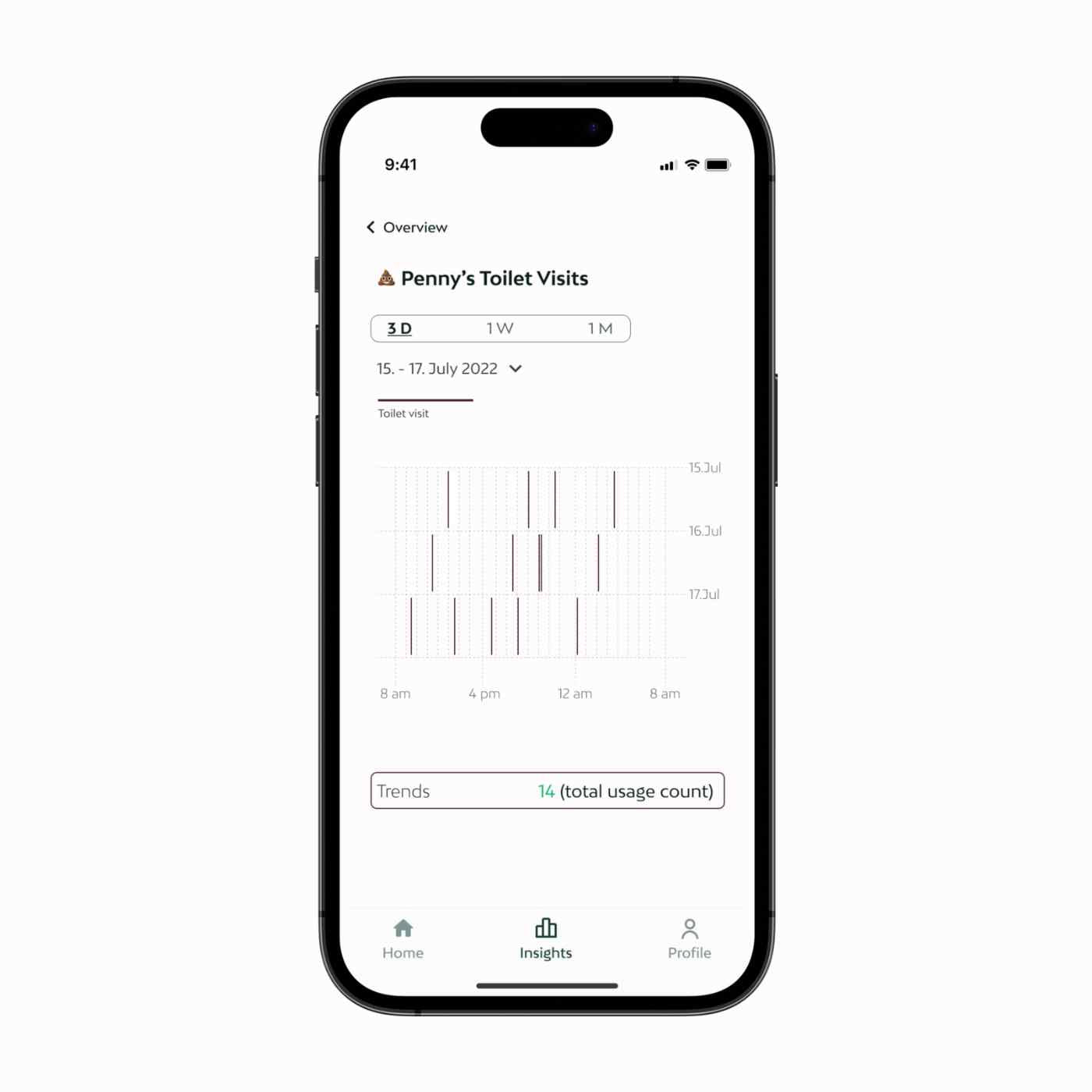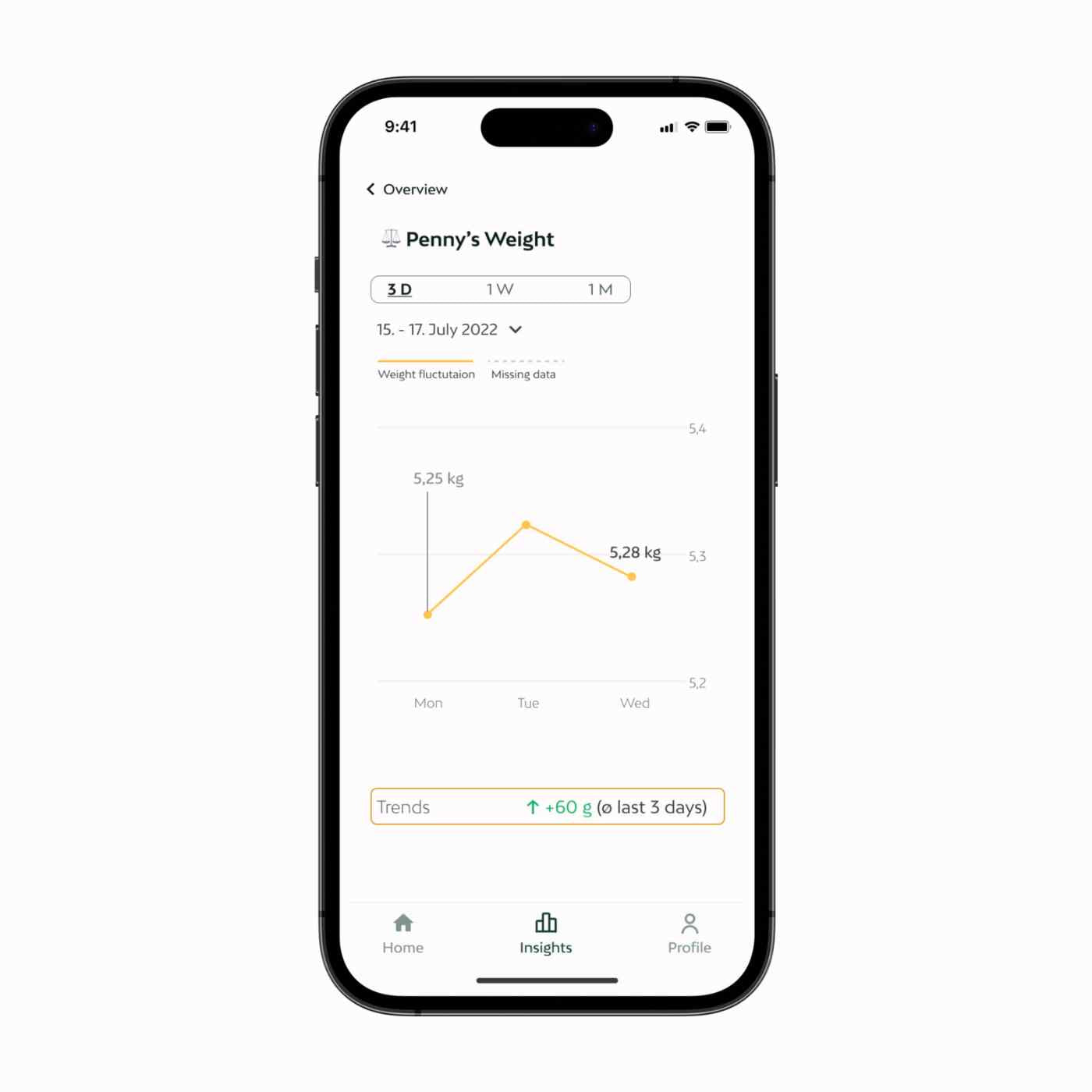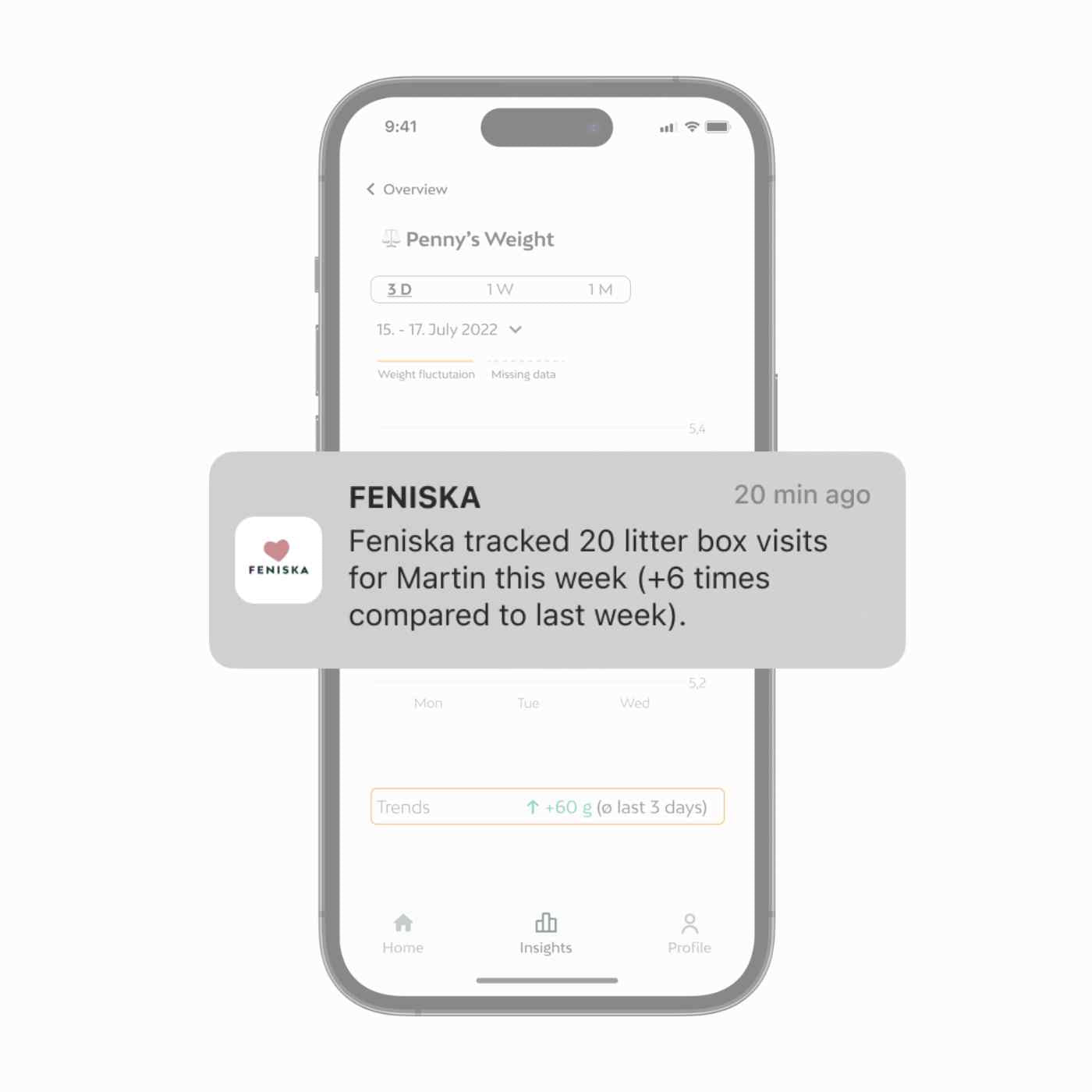Developed for you and your cat
Feniska helps you identify symptoms of diabetes in your cats fast

Automated monitoring of toilet visits

Automated weight tracking including trend analysis.

Health reports and alerts about abnormalities
Diabetes in cats - symptoms
When your four-legged friend is diagnosed with a chronic condition like diabetes, it can come as a huge shock at first! In order not to let it get that far, you can learn to recognize abnormalities based on certain symptoms and behavior patterns before you invest unnecessary costs in a doctor's visit.
Diabetes is a hormone disease in which the hormone insulin, depending on the type, cannot be produced or processed properly. If the symptoms of the disease are caught early, feline diabetes mellitus can be treated more easily and your cat can lead a happy feline life.
Determining diabetes in cats - what you should pay attention to.
These are the most common symptoms of feline diabetes
To diagnose diabetes in cats, you should look for a variety of symptoms. One of the most noticeable symptoms of feline diabetes is weight fluctuations. Since your cat's body still needs energy despite the lack of blood sugar, it falls back on fats and other nutrients. The nutrient deficiency is noticeable in your pet through increased appetite and gradual weight loss. Therefore, you should think about checking your pet's weight regularly so that you can detect small changes at an early stage.
Symptoms of feline diabetes are more diverse than mere weight loss. The excess blood sugar travels from your cat's bloodstream to the kidneys, which are there to excrete excess vitamins and toxins or waste from the blood through urine. Overloading your cat's kidneys prevents them from working properly, leading to increased urination, dehydration and excessive thirst. If you notice that your cat spends a lot of time in the litter box or urinates outside the litter box but wants to drink more, this can be a sign of diabetes mellitus.
Diabetes in cats - so symptoms are as follows:
- increased feed intake
- weight loss
- frequent urination
- increased thirst
- fatigue, lethargy
How do cats behave with diabetes?
Identifying symptoms of diabetes in cats is easier when you know what to look for in your cat's daily behavior.
Since the sugar in your cat's blood cannot be converted into energy, it will appear very tired and lethargic in everyday life. Often this tiredness can also cause irritability. So if your cat is shy and suddenly withdraws, you should watch her more closely.
As mentioned above, a diabetic cat's kidneys are under a lot of strain. Due to the frequent urge to urinate, cats sometimes do not make it to the toilet in time and urinate on the floor or around the litter box. If they do make it to the toilet, they spend a long time there because their bladder is irritated.
Your cat's eating behavior and thirst are also disturbed by the hormonal disease and cats with diabetes are much hungrier than usual, especially in the early stages of the disease. This manifests itself, for example, in your cat begging, eating its food quickly and more spends time at their bowls. If she also starts to empty her water bowl more quickly and drink more often, this can indicate diabetes mellitus.
So you can detect diabetes in cats if you observe your four-legged friend more closely and also know about the connections between the various symptoms. Although diabetes is a chronic disease, it can be treated appropriately if diagnosed in good time.
The behavior of cats with diabetes can be summarized as follows:
- Persistent tiredness and listlessness
- Self-isolating behavior (your cat withdraws, doesn't want to be touched)
- Intense hunger and thirst (your cat often waits in front of its bowl, begging for food)
Find out more about common cat diseases or other topics related to cat health by visiting our blog .
About Feniska
Feniska is a Berlin-based animal health startup that develops smart, stylish and easy-to-use devices to maintain and improve pet health. It is our promise to recognize symptoms of illness faster than the veterinarian and thus avoid unnecessary headaches and veterinary costs.
The first product is the Feniska Base, an intelligent toilet pad that is placed under the litter box. The pad monitors the cat's weight development and toilet visits and can thus detect anomalies in good time. Our data-driven approach makes it possible to quickly make statements about disease symptoms that indicate diabetes, cystitis, kidney failure or obesity.*
The smart base connects to the Feniska app, so you always have an overview of your cat's health, even when you're not at home.
Feniska's mission is to ensure a healthy and happy cat life and we take this task very seriously.
*Disclaimer: Feniska is not a veterinarian and is excluded from liability. The statements about symptoms of illness are to be considered as such, not as complete diagnoses. Please consult a veterinarian in any case.







